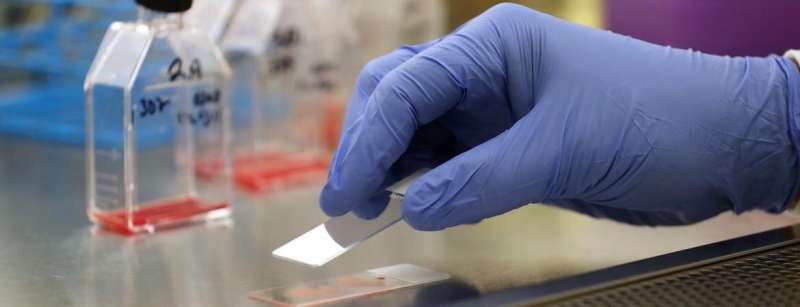Raising the bar through authentic research

Boil the water, add the ingredients, stir.
The instructions given in undergraduate science labs can feel a bit like making ramen noodles.
"Lab courses that accompany many large science undergraduate lectures often adopt a cookbook-type approach, where students follow a series of instructions in a stepwise process without really understanding why they're doing what they're doing," said Marsha Ing, an associate professor of educational psychology in the University of California, Riverside's Graduate School of Education.
But does a more authentic research experience improve students' understanding of what they're learning in class? Ing and her colleagues explored this question in a study published Oct. 28, 2020 in the journal Educational Researcher. The study highlights the academic benefits of an undergraduate research experience offered at UCR called the Dynamic Genome.
Developed by Susan Wessler, a distinguished professor of genetics, the Dynamic Genome course (Biol20) is an undergraduate research experience that complements what students learn in an introductory molecular biology class. Wessler created the course to mirror a real research project, in which students form hypotheses, troubleshoot problems, analyze data, and present their findings.
"Most incoming students at UCR are first generation to college, as I am, and most do not know about the exciting research labs that surround their classrooms," said Wessler, who holds the Neil and Rochelle Campbell Presidential Chair for Innovations in Science Education and is a Howard Hughes Medical Institute Professor. "By participating in the Dynamic Genome course, first-year students learn in their first lab course what it means to be at a research university and how to access the wealth of cutting-edge research experiences ongoing at UCR."
The Dynamic Genome course is currently offered to a third of students entering UCR's College of Natural and Agricultural Sciences. With the goal of offering it to more students in the future, Wessler set out to learn more about its effectiveness.
"Only after it is shown to be a better product can we take the next step and either replace the traditional course or, more commonly, identify the successful features of the new course and modify the traditional one," Wessler said.
Comparing average course grades between students who participated in the Dynamic Genome course and those who participated in a traditional lab, the study spanned five years and assessed more than 2,000 students.
"It was unique opportunity to have a natural experiment where the only difference was the lab course and there were multiple outcomes to compare," Ing said.
Students who participated in the Dynamic Genome course had significantly higher grades in the related lecture courses. Participation in the program also reduced grade disparities for females, first-generation, low income and minority students, all of whom are typically underrepresented in STEM fields. However, the academic benefits of the course didn't transfer to grades in courses with content that didn't closely overlap with material covered in Dynamic Genome course.
"It's encouraging that students are more likely to understand and enjoy science if they learn, through experimentation how the facts in their textbooks were discovered," Wessler said.
"The fact that participating in the Dynamic Genome course only impacted the grades in the related courses suggests that modification of the labs associated with these other courses might have a similar impact on grades in those courses. This is important because the overall goal of our program is to increase student persistence in a STEM major. One experience at the very beginning of their coursework is not enough to effect long lasting change—which is not surprising."
The title of the paper is "Participation in a Course-Based Undergraduate Research Experience Results in Higher Grades in the Companion Lecture Course."
More information: Marsha Ing et al. Participation in a Course-Based Undergraduate Research Experience Results in Higher Grades in the Companion Lecture Course, Educational Researcher (2020). DOI: 10.3102/0013189X20968097
Provided by University of California - Riverside



















